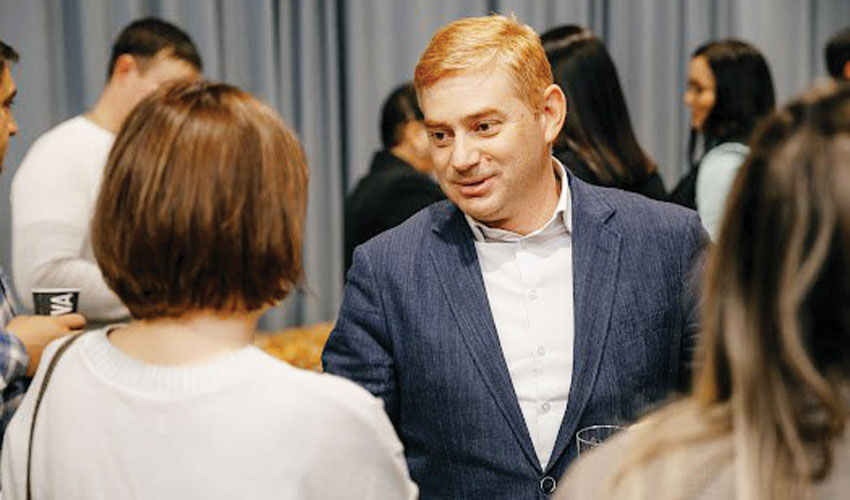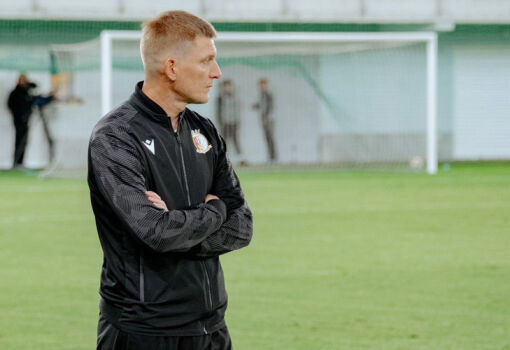
Ion Carpineanu
The Center was established within the framework of the international program “Mayors for Economic Growth” funded by the EU and the United Nations Development Program (UNDP). It has been operating since 2017 and is administered by the regional office in Istanbul. At the moment, the Mayors for Economic Growth initiative unites 67 Moldovan participants, among which is the commune of Carpineni.
The funds of this program (about 270 thousand euros, of which about 240 thousand euros were provided by the EU) were used to finance the renovation of the premises where the center operates today and to equip it with furniture. But not its activity. Therefore, when journalists were informed two years ago that such a center was being prepared for opening, they doubted the prospects of the undertaking. Consulting in rural areas seemed to be a “fifth element” that would be quickly forgotten after the project was closed. First of all, due to the lack of financial support for it.
The solution was that from 2022, 5% of the funds of the National Fund for the Development of Agriculture and Rural Environment, which is distributed by AIPA, began to be allocated to LEADER program projects. Therefore, a member of this program, the local initiative group (MIG) “Cișmeaua Caprioarelor”, which includes the commune of Caerpineni, began to administer the center’s work.
“Since the project ended, MIG hired consultants with its own money,” says Ion Carpineanu, former (from 2010 to 2023) mayor of the municipality, today chairman of MIG “Cișmeaua Caprioarelor”. – Their salaries and grants we pay from the fund. And also the utility costs, which have been reduced because we have implemented a project to produce electricity from renewable sources. The premises are now heated virtually free of charge. We fund startups as well as established businesses that need to improve and expand technologically. This is a much faster, affordable and entrepreneur-friendly form of cooperation between the local government, businesses and the Ministry of Agriculture and Food Industry.”
The national LEADER network covers a niche of rural development that was previously almost empty. Individual projects were funded but lacked systematicity. Now they can apply for funds from the subvention fund. Funding within the network is provided free of charge. These are grants ranging from MDL 60 thousand to MDL 200 thousand and above. To them, beneficiaries have to add their own contribution.
Today, five consultants work in the center, providing services in the field of accounting, personnel management, financing programs, labor legislation, product promotion and others. And they also train entrepreneurs to develop projects so they can attract funding.
“In our villages, local authorities cannot cover expenses relying only on their own finances, especially for local development needs,” says Ivan Iskimji, mayor of Kolibabovka village in Leova district. – Often, budding entrepreneurs need a little financial support, some kind of impetus. That is why we have already implemented three projects during the center’s operation. We started with a small one – to equip and technically equip the reading room of the library. Now it is multifunctional and provides a number of additional services, as well as a place for various courses.
Within the framework of the second, already larger project, the village authorities renovated the House of Culture, receiving a 200,000 lei grant. In the third project, local entrepreneur Dmitri Volkov used the money to buy hazelnut harvesting equipment from Germany. His farm grows hazelnuts on an area of 5 hectares and exports the products. “That is, applicants first write small projects, then they are admitted to larger financing, so our next project will be already for half a million lei,” notes Ivan Iskimji.
According to Ion Carpineanu, the number of projects implemented through the center is growing. The funds and opportunities are increasing, as well as the number of entrepreneurs, whose contribution is growing due to the opening of new jobs and contributions to the commune’s budget. Recently, the most investments have been made in the installation of solar panels, agricultural production and processing.
“We only support projects that are in line with the village’s development strategy,” he says. – As mayor, I felt the beneficial effects of investment when a 100-employee medical garment factory opened in Cărpineni ten years ago. Its products are exported to Belgium. Funds were immediately injected into the budget, and they are still flowing today. This is the only way we can hope for the return of our citizens from abroad.
Several small businesses in Caerpineni have been set up by former migrants. One of them has established pasta production according to Italian recipes and successfully sells it in national retail chains. Two young people returned from Ireland, bought premises and opened a outlet where they sell kebabs. At first they were helped to purchase equipment, and when energy prices rose and business stalled, they prepared another project to purchase solar panels, which they installed on the roof of the café.
There is a mill in the village that used to produce animal feed with old equipment. With the grant, it purchased new one and expanded its services for the whole region. Another beneficiary opened a cattle farm. With the support of the center, he bought equipment for forage production. At the moment, he is raising 62 cows, but expects another 69 animals, which he purchased with advance subventions from AIPA. This is the synergy of development.






